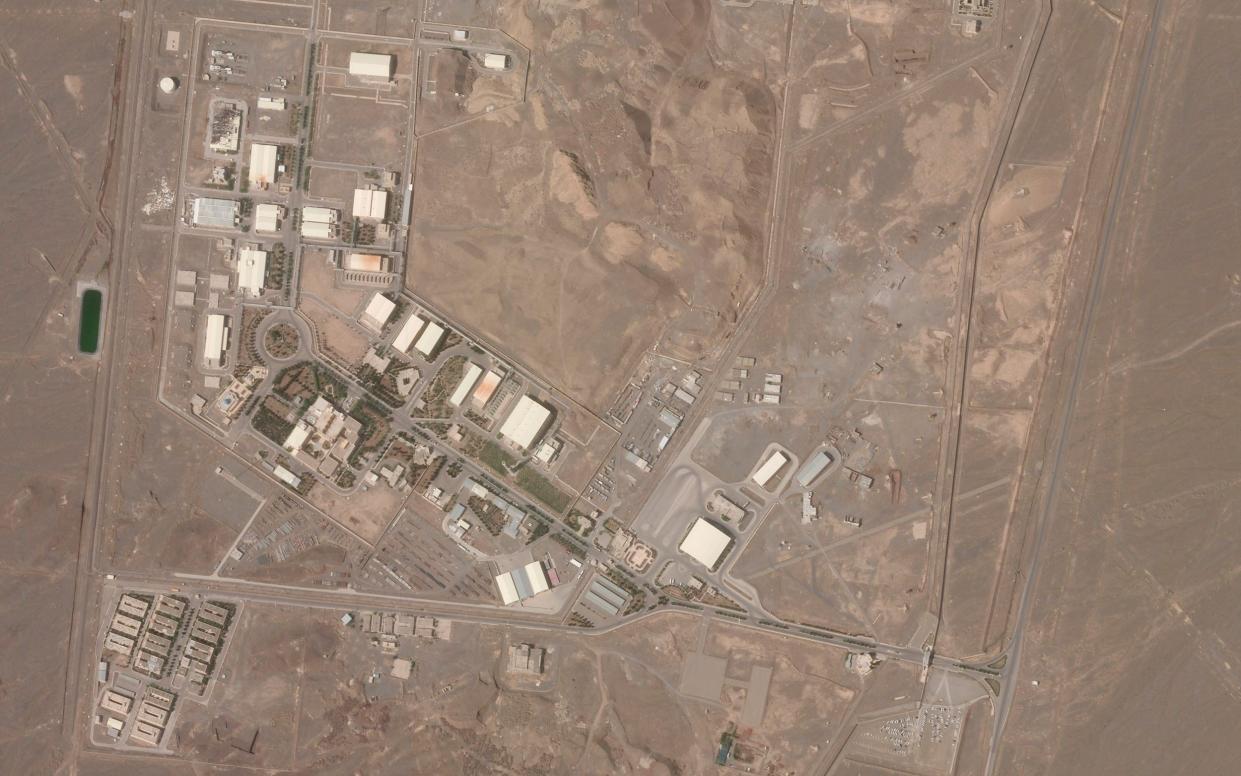Israeli spies tricked Iranian scientists into blowing up nuclear plant

Agents from Israel’s spy agency Mossad recruited Iranian scientists to sabotage the nuclear facility where they were employed by smuggling in explosives disguised as boxes of food, it has been reported.
The explosion at the Natanz nuclear facility in April completely destroyed the plant’s independent internal power system, which powered centrifuges for enriching uranium protected underground by 20 feet of reinforced concrete.
It was the second time in a year that it had been attacked in what security officials of several countries have said was an Israeli operation.
A report published on Thursday in the Jewish Chronicle alleged new details of the operations.
These included that Iranian scientists were duped into thinking they were carrying out the April operation on behalf of exiled Iranian dissidents, rather than agents working for Iran’s arch-enemy Israel.
Some of the explosives used in the attack were dropped into the facility by drone, while other components were smuggled past security disguised as boxes of food in a catering truck, the newspaper reported.
The report also claimed that an earlier blast at the facility in July 2020 was caused by explosives hidden in building materials used during construction a year before..
The report detailed a bombing carried out by a motorcycle-sized quadcopter drone on the Iran Centrifuge Technology Company, in Karaj, 30 miles northwest of Tehran, in June.
The attacks were reportedly carried out by Israel independently of the United States.
'The enemy's beautiful plan'
The claims in the report appeared to be based on a single unnamed source, likely an Israeli intelligence agent. The Telegraph was unable to corroborate the claims.
Israel does not usually confirm details of its covert operations and officials did not immediately respond to a request for comment.
Iran acknowledged that attacks on Natanz had set its nuclear programme back by months and said it was searching for Iranian suspects in relation to the operation, naming 43-year-old Reza Karimi as a wanted fugitive.
Ali Akbar Salehi, the head of Iran’s Atomic Energy Organisation, called the April attack on Natanz an act of “nuclear terrorism”.
Iranian officials acknowledged the complexity of the April attack, which took out both the plant’s main power system and its backup.
“From a technical standpoint, the enemy’s plan was rather beautiful,” Fereydoon Abbasi Davani, the head of the Iranian parliament’s energy committee, told Iranian state television on Monday.
The new revelations in the Jewish Chronicle appeared days after Iran resumed negotiations with world powers over returning to the nuclear deal. Former President Donald Trump unilaterally withdrew the US from the deal.
The 2015 agreement to limit Iran’s nuclear activities was aimed at preventing Tehran from developing a nuclear weapon but Israel and Mr Trump argued it did not go far enough.
Tehran maintains that its nuclear programme is for peaceful purposes and it has no intention of developing a nuclear weapon.
But it has been steadily increasing the levels to which it enriches uranium far beyond the 3.67 percent limit set by the agreement. This year Iran has enriched uranium to 60 per cent, much closer to the 90 per cent needed for a nuclear weapon.
In a recent interview, the former head of the Iranian Atomic Energy Organisation seemed to suggest that Iran had created a “system” to develop an atomic weapon.
US Secretary of State Antony Blinken said on Thursday that chances of reviving the nuclear deal were decreasing.
"I have to tell you, recent moves, recent rhetoric, don't give us a lot of cause for optimism," he said.


